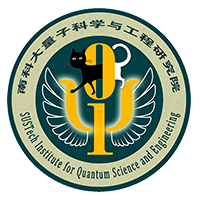Research progress in Perfect Discrimination in Approximate Quantum Theory
Recently, the Shenzhen Institute for Quantum Science and Engineering (SIQSE) at Southern University of Science and Technology have made significant theoretical progress in perfect discrimination in an approximate quantum theory of general probabilistic theories (GPT). The research team mainly includes Masahito Hayashi, Chief Research Scientist of the Institute, and Yuuya Yoshida, Hayato Arai, Ph D students of Graduate School of Mathematics, Nagoya University. They have characterized the difference between an approximate quantum theory of general probabilistic theories and quantum theory in terms of perfect discrimination. The prestigious academic journal, Physical Review Letters, has recently published the research results entitled "Perfect Discrimination in Approximate Quantum Theory of General Probabilistic Theories."
General probabilistic theory (GPT)is a framework to include quantum theory and classical probability theory. Since GPT is composed of natural postulates, it is widely considered that it is valid without any physical assumption.
However, since it assumes very weak postulates, it cannot determine our physical laws uniquely. For example, even when we accept the physical law of each quantum system, we cannot determine the physical system of their composite system from the viewpoint of GPT.
In recent years, there are several theoretical progress for GPT beyond quantum theory. For example, Dahlsten et al (New J. Phys. 14, 063024 (2012).) proposed Data processing inequality based on General entropy in the framework of GPT. Lami et al (Commun. Math. Phys. 361, 661 (2018)) discussed data hiding in the framework of GPT. These preceding studies show the possibility of information processing in the framework of GPT beyond quantum theory. These studies clarified that an extremal improvement is possible if the adopted GPT is far from quantum theory. Therefore, it is demanded to investigate how much the limitation of information processing is changed when the adopted GPT is not so far from quantum theory.
To clarify this point, the research group has introduced two classes of GPTs that have a parameter to characterize the difference from quantum theory. Since the case with parameter 0 corresponds to quantum theory, these classes can be considered as approximate quantum theory. Then, the group has clarified that the performance of perfect discrimination is drastically improved even when the parameter is close to 0, i.e., the case with quantum theory. That is, when the parameter is not zero, a certain non-orthogonal pair of states can be perfectly discriminated. As a consequence, any non-orthogonal pair of states can be perfectly discriminated by using their n copies when n is sufficiently large. Notice that any non-orthogonal pair of states cannot be perfectly discriminated even when any finite copies are available. This difference shows the discontinuity between quantum theory and approximate quantum theory
Masahito Hayashi (Chief Research Scientist of the Shenzhen Institute of Quantum Science and Engineering (SIQSE) at Southern University of Science and Technology) is the corresponding author. Yuuya Yoshida is the first author, and Hayato Arai is the second author. This work was, in part, supported by Guangdong Provincial Key Laboratory and Science, Technology and Innovation Commission of Shenzhen Municipality.



